Vitamin B9 : Vitamin B9 is a water-soluble vitamin that is essential for your body.…
Top 10 Indian Foods Rich In Vitamin B12
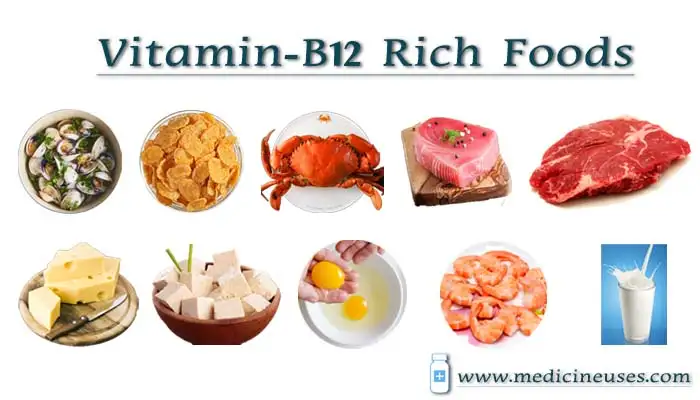
Vitamin B12 :
Vitamin B12 is one of the important vitamins that is needed for the production of DNA and red blood cells. It also helps in the production of energy from food. Vitamin B12 deficiency can cause a variety of symptoms such as fatigue, confusion, and tingling in the hands and feet. Low levels of vitamin B12 can be caused by anorexia nervosa, malnutrition, or a lack of intrinsic factor which is necessary to absorb vitamin B12 from food.
- Vitamin B12 well known as Cobalamin, is an essential yet highly complex vitamin that contains the mineral cobalt and hence the name
- Vitamin B12 is produced naturally by bacteria and is found in animal – orgin products
- Vitamin B12 is required for the development, myelination, and function of the central nervous system
- Helps keep your body’s nerve and blood cells healthy
- B12 is necessary for making healthy red blood cells, DNA synthesis and for energy production
- Vitamin B12 can be consumed in large doses since excess B12 is stored in the liver for use when supplies are scarce
- Vitamin B12 is bound to protein in food and must be released before it is absorbed into the bloodstream
- Adequate stomach acid is required to release the vitamin from the protein
- Reduces cancer risk, cardio vascular disease and stroke
- Deficiency of the vitamin can cause weakness and fatigue
- Most striking side effects of nerve damage, feeling the sensation of pins and needles on your skin
- Might lose your sense of balance and coordination
- Blurred or disturbed vision
- Deficiency causes mouth ulcers, burning or itching in your oral cavity
- The daily value for vitamin B12 is 2.4mcg per day
Ten Important Indian Foods Which is Rich in Vitamin B12
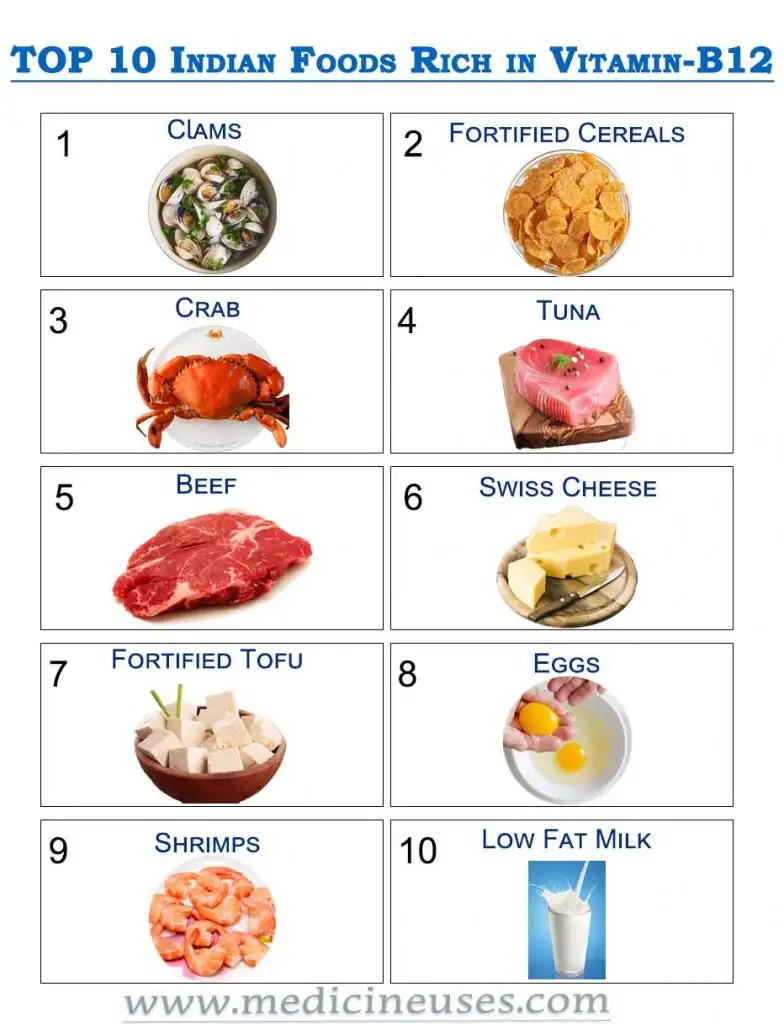
| 1 Clams | 2 Fortified Cereals |
| 3 Crab | 4 Tuna |
| 5 Beef | 6 Swiss Cheese |
| 7 Fortified Tofu | 8 Eggs |
| 9 Shrimps | 10 Low Fat Milk |
1. Clams :
- Clams are low-fat, high-protein in nature
- Clams have more vitamin B-12 per serving than any other food and it helps keep nerves and blood
cells healthy, balancing mood and fighting fatigue
Baby clams particularly have shown to be a great source of iron, antioxidants and vitamin B12 - As an antioxidant, it heals wounds, repairs and maintains cartilage, bones, and teeth
- The broth of boiled clams is equally rich in vitamin
- They promote sexual health
- Have been found to possess cancer-preventing properties
- Normal functioning of the brain and nervous system
- Aids in digestion and proper absorption of nutrients from foods
- Fights chronic fatigue
- Helps expedite the release of melatonin, improving sleep patterns and resulting in better, more restful sleep
- B12 also helps maintain red blood cells and nerve cells and aids in the formation of DNA
- Reduce the risk for heart disease by lowering blood triglyceride levels
- Per 100 grams serves around 98.9 mcg
2. Fortified Cereals :
- Fortified foods contain added vitamins and minerals that aren’t naturally present in them
- Fortification is done to improve nutrients value more and is common for foods such as grains, milk, and juice
- Cereal is one of the most commonly fortified foods
- Reduces the risk of nutrient deficiencies
- It has helped reduce the incidence of birth defects
- Necessary for proper growth and development
- Their main purpose is to boost energy, but they also aid the nervous system, blood and skin
- Whole grains are the best choice for blood sugar control, weight management, and fiber for fullness and healthy digestion
- Fortified oatmeals are high in B vitamins, folic acid, vitamin A, and iron
- Fortified cereals 100 grams has 21 mcg of vitamin B12
3. Crab :
- Crab is a major source of protein
- The protein in crab is high in quality, because of a lack of connective tissue, easy digestible for people of all ages
- Rich in vitamins and minerals
- Meat of crab is also low in fat and contains Omega-3 polyunsaturated acids
- It helps provide protection from heart disease and aids brain development
- Plays major role in antioxidant defence mechanism preventing damage to cells and tissues
- Supports greater immune health and also helps in thyroid hormone metabolism and synthesis in reproduction
- Presence of copper is high which aids in the absorption, storage and metabolism of iron
- It is important in the formation of red blood cells and keeps bones, blood vessels, nerves and the immune system healthy
- Important in skeletal health and development.
- 100g of crab provides 62% of daily recommended value for adult men and women i.e. 11.5 mcg
4. Tuna :
- Tuna is a low glycemic index food and excellent source of selenium, phosphorus, potassium, magnesium, choline and B vitamins especially vitamin B12
- It is less in fat, high in protein and omega-3 fatty acids
- It helps in anti-aging and anti wrinkle effects, by increasing the elasticity and moisture of the skin giving a glow to it
- The B vitamins present supports heart health and helps to lower the cholesterol levels
- Selenium present has a strong antioxidant property helps boost immunity and prevents chronic diseases
- Tuna consumption supports bone health and protein improves the muscle health making it stronger
- Improves the metabolism and provides energy to all cells aids in the formation of red blood cells
- Mainly prevents and heals stroke maintaining brain health
- Per 100 grams of Tuna has 10.9 mcg of Vitamin B12
5. Beef :
- Beef, red meat is an excellent source of protein and various vitamins and minerals
- It includes vitamin B12, zinc, selenium, iron, niacin, and vitamin B6 related to more health benefits
- Animal meat like beef contains a number of bioactive substances, such as creatine, taurine, CLA, and cholesterol
- Beef contains higher amounts of iron than chicken or fish
- Lean beef is more preferable and the protein present helps in building muscle strength
- It contains all nine essential amino acids needed for the growth and maintenance of our body
- Helps in blood formation and enhances your brain and nervous system
- Grass-fed beef offers more heart-healthy omega-3 fatty acids and antioxidants than conventional grain-fed beef, making it a highly nutritious option
- 100 grams of beef has around 7.5 mcg of B12 vitamin in it
6. Swiss Cheese :
- Cheese is one of foods source on Vitamin B12
- There are a large variety of cheese available
- Swiss cheese, a medium-hard cheese, serves an excellent source of daily required nutrients
- They possess large holes which indicate a stronger flavor and longer maturation process
- Swiss cheese is valued for its portability, long life, and high content of fat, protein, vitamins, calcium, and phosphorus
- Amount per 100 grams of cheese serves 3.5mcg per 100 grms
- Presence of the protein and calcium found in swiss cheese contribute to healthier, stronger bones
- Protein has been linked to the development of bones and their formation
- While calcium intake ensures that our bones are healthy, and also contributes to healthy blood flow and muscles
- Swiss cheese contains a lot of protein, benefits to the body like building muscle mass and contributing to our strength
- Eating more of swiss cheese has been proven to be directly related to building strength in resistance training
- Helps reduce blood pressure
- Beneficial in boosting your metabolism and reducing food cravings, which helps in weight management
- It can be eaten raw, or in baked / toasted dishes/ as cheese spreads
7. Fortified Tofu :
- Tofu is an important low calorie source of protein for vegetarians
- If tofu is fortified, it serves as a good source of vitamin B12
- Tofu is an important low calorie source of protein for vegetarians
- Soy isoflavines have been found to help reduce levels of LDL (bad cholesterol)
- It can enhance the skin and hair, boost energy, and help maintain a healthy weight
- It has antioxidant properties that may inhibit the growth of cancer cells
- Protein, and particularly soy protein, may enhance renal function, and it could have benefits for people who are undergoing dialysis or kidney transplantation
- Soy isoflavones may help reduce bone loss and increase bone mineral density, especially after menopause
- Help prevent liver damage caused by free radicals
- Soy isoflavones performance in nonverbal memory, verbal fluency and other functions
- Soybeans are also high in healthy polyunsaturated fats, especially omega-3 alpha-linolenic acid
- It provides around 1.5 mcg per 100 grams
- We can make gravies, salad..etc
8. Eggs :
- Eggs are nutrient rich, protein in an egg can be found in the egg white, while the yolk contains healthy fats, vitamins, minerals and antioxidants
- Proteins are the building blocks of life and a single egg contains about 6.3 grams of high-quality protein. The main functions of proteins in the body are to build, strengthen and repair or replace things, such as tissue
- Eggs provide us with very high-quality protein that contains all nine essential amino acids in the right amounts needed by the body for optimum growth and maintenance
- Egg yolks are high in cholesterol and are a major source of dietary cholesterol
- Has greater effect on our blood cholesterol levels and, therefore, heart disease risk
- Omega-3 in eggs help in heart, brain health and in protecting our eyes
- Eggs are one of the healthiest foods you can eat for weight management
- Eating eggs can also help reduce variations in glucose and insulin levels
- Choline is essential for normal cell functioning and is particularly important during pregnancy to support healthy brain development in the baby
- Eggs are also a low-carbohydrate food with a very low glycemic index score helps with diabetes
- A lower risk of gastrointestinal distress may be due to egg yolk proteins, such as phosvitin
- Certain compounds called sulfated glycopeptides are present in the membrane of the egg yolk helps in boosted immune system
- Egg yolk contains several compounds called peptides that helps in reduction of blood pressure
- The carotenoids present may protect against cataracts and macular degeneration
- Eggs per 100g contain 1.1 mcg of Vitamin B12
9. Shrimps :
- Seafood like shrimps is an excellent source of proteins and vitamins
- Shrimps are also a healthy source of vitamin B12
- Shrimp helps in regulating the bodys energy usage, fat storage, and appetite
- Helps to keep our body’s blood and nerve cells healthy
- They are antioxidant in nature and also help in fighting damaged cells and protects body from the attack of free radicals
- Shrimps are also high in minerals like iron and zinc, important for hair growth as they inhibit hair loss and thinning
- It helps by producing new cells and maintains the oil-secreting glands and thus ensures beauty
- Astaxanthin, another antioxidant helps reduce inflammation that is a known cause and factor of ageing and disease
- They boost the immune system
- Prevents body from attack of different kinds of tumour
- Iodine in the shrimp helps in proper functioning of the thyroid gland and regulates the body mechanism
- 100 grams of shrimp holds 0.6 mcg of Vitamin B12
10. Low Fat Milk :
- Reduced-fat milk and skim milk have fewer calories and higher amounts of vitamins
- Skim milk actually has more calcium than whole milk because calcium is found in milk solids, not milk fat
- Milk is also fortified with vitamins, making it one of the only dietary sources of this nutrient, which is emerging as an anti-cancer vitamin
- Dairy products are excellent sources of potassium and magnesium, which naturally reduce blood pressure
- A daily glass of milk can also reduce the risk of colorectal cancer by 15 percent
- Helps prevent osteoporosis and bone fractures and even help you maintain a healthy weight
- 0.5mcg per 100 grams
Vitamin B 12 Deficiency Symptoms & Signs
Vitamin B 12 deficiency symptoms can be difficult to identify, but they can have serious long-term health consequences.
These are some signs and symptoms of vitamin b 12 deficiency:-Weakness or fatigue
- Memory loss or forgetfulness
- Difficulty concentrating or thinking clearly
- Numbness and tingling in the extremities
- Sore tongue
- Muscle cramps
Vitamin b 12 deficiency is most often caused by a lack of intrinsic factor, which is necessary for the absorption of vitamin b 12 . It can also be caused by an autoimmune disorder, pernicious anemia, gastric bypass surgery, and other factors.
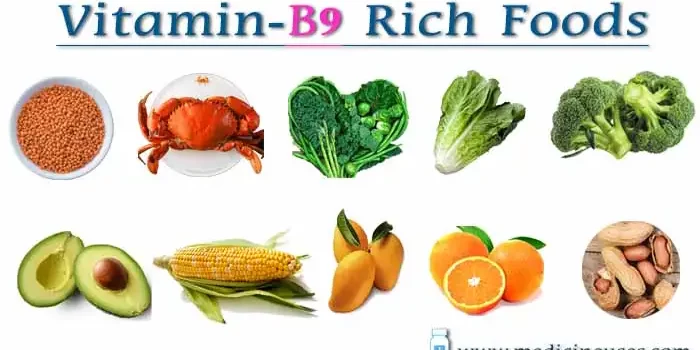
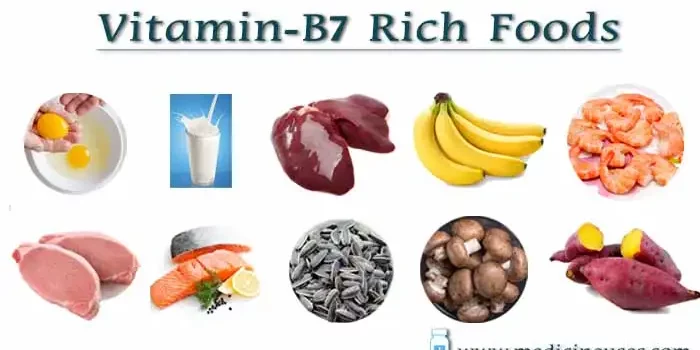
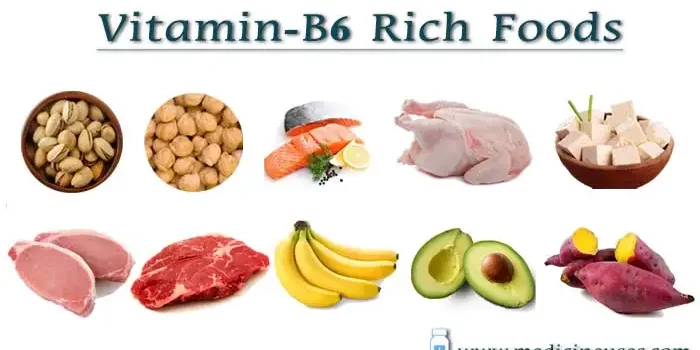
This Post Has 0 Comments